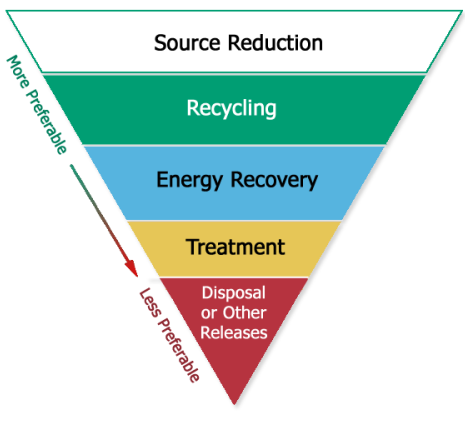Production Related Waste Management for Selected Chemical
lchemid=0000137268
Waste Management Comparison - 2020
Pollution Prevention Activities for Selected Chemical
| Reporting Year | Section 8.10: Newly Implemented Source Reduction Activity | Section 8.10: Methods to Identify Activity | Section 8.11: Optional Pollution Prevention Information* |
|---|---|---|---|
| 2021 | |||
| 2020 |
Source Reduction:: W19: Other changes in operating practices
|
Methods to Identify SR Opportunities: T04: Participative team management
|
W19: team review Other Environmental Practices: Recycling - recycling where it exist |
| 2019 |
Source Reduction:: W89: Other product modifications
|
Methods to Identify SR Opportunities: T04: Participative team management
|
W89: Production during 2019 was down. Formulations change on a daily basis which affect reporting and P2. Source Reduction: Source Reduction - Production during 2019 was down. Formulations change on a daily basis which affect reporting and P2. |
| 2018 |
Other Barriers to Source Reduction - Increase in production for materials using this chemical. |
||
| 2017 |
Source Reduction:: W82: Modified design or composition of product
|
Methods to Identify SR Opportunities: T04: Participative team management
|
|
| 2016 |
Source Reduction:: W19: Other changes in operating practices
|
Methods to Identify SR Opportunities: T04: Participative team management
|
W19: Reduced production but changes in formulations. Source Reduction - Reduced production but changes in formulations. Source Reduction: Source Reduction - Reduced production but changes in formulations. |
| 2015 |
Source Reduction:: W21: Instituted procedures to ensure that materials do not stay in inventory beyond
|
Methods to Identify SR Opportunities: T04: Participative team management
|
Other Environmental Practices: Energy Recovery - Landfilled - Waste to Energy.... At landfill, there is a power plant that captures the methane gas created by waste in the landfill & feeds it back to the energy grid. This gas will generate electricity for approx. 2,500 homes 24/7. |
| 2013 |
Source Reduction:: W19: Other changes in operating practices
|
Methods to Identify SR Opportunities: T03: Materials balance audits
Methods to Identify SR Opportunities: T04: Participative team management |
|
| 2012 |
Source Reduction:: W19: Other changes in operating practices
|
Methods to Identify SR Opportunities: T03: Materials balance audits
Methods to Identify SR Opportunities: T04: Participative team management |
Source Reduction - Teams were used to assess processes within the facility to improve line efficiency and control of raw materials. |
TRI Pollution Prevention Glossary
The Waste Management Hierarchy |
The waste management hierarchy established by the Pollution Prevention Act (PPA) guides waste generators toward the best options for managing wastes.
The preferred option is to prevent pollution at its source, but for waste that is generated, the preferred management methods are recycling, followed
by burning for energy recovery, treatment and, as a last resort, disposing of the waste.
|
- A breakdown of production-related waste managed. This includes all amounts of the chemical released directly to the environment or otherwise managed as waste, other than waste generated by one-time events not associated with normal production processes (e.g., fires or remedial actions).
- A production ratio or activity index to provide context for reported toxic chemical quantities. For example, if a chemical is used in the manufacture of refrigerators, the production index would track the number of refrigerators produced and could be used to help gauge how much of the chemical is being released per unit of production.
- Any newly implemented source reduction activities, reported using "W-codes" (e.g., "W41: Increased purity of raw materials")